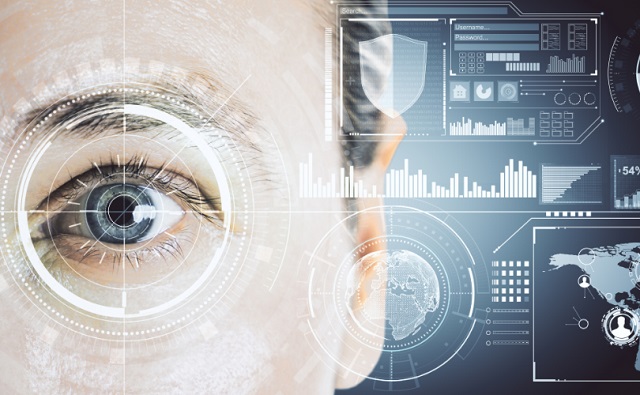Digital ID
Age of online privacy coming to an end as Australia adopts digital ID

Australia’s eSafety Commissioner Defends Controversial Online Age Verification Digital ID Methods
|
|
Digital ID
The Global Push for Government Mandated Digital IDs And Why You Should Worry

From StosselTV
Countries all over the world are imposing digital IDs. They tie your identity to everything you do. Spain’s Prime Minister wants “An end to anonymity online!”
Tech privacy expert Naomi Brockwell @NaomiBrockwellTV warns that’s dangerous. “Privacy is not about hiding,” she tells Stossel TV producer Kristin Tokarev. “It’s about an individual’s right to decide for themselves who gets access to their data. A Digital ID… will strip individuals of that choice.”
The new government mandated digital IDs aren’t just a digital version of your driver’s license or passport. “It connects everything,” Brockwell explains. “Your financial decisions, to your social media posts, your likes, the things that you’re watching, places that you’re going… Everything you say will be tied back to who you are.”
And once everything runs through a single government ID, access to services becomes something you need permission for. That’s already a reality in China where citizens are tracked, scored, and punished for “bad” behavior.
Brockwell warns the western world is “skyrocketing in that direction.” She says Americans need to push back now.
———
To make sure you receive the weekly video from Stossel TV, sign up here: https://www.johnstossel.com/#subscrib...
———
Digital ID
Canadian government launches trial version of digital ID for certain licenses, permits

From LifeSiteNews
The Employment and Social Development Canada (ESDC) department has officially confirmed it is developing a digital ID for certain licenses and permits.
The Employment and Social Development Canada (ESDC) department has officially confirmed it is developing a digital ID for certain licenses and permits, called “GC Issue and Verify,” which has already been listed on the Google Play store, as a trial-only app for certain users.
The digital ID claims the government can replace and be full “digital versions” of the “physical credentials they already provide today, like work permits and boating licenses.”
“Instead of only having physical credentials in their wallets, people will also be able to securely store their digital credentials on their mobile devices,” says the government.
According to ESDC officials, the digital IDs can be shared online or in-person “when needed, making it easy for departments, organizations, and businesses to validate their information.”
The government argued that since many Canadians already use “digital credentials without realizing it,” such as a digital ticket “stored on our mobile device instead of using a printed ticket,” this would be the same for IDs such as licenses.
ESDC said that “digital options” will be voluntary and that people can still use “traditional physical methods of verification,” instead.
READ: Canada releases new digital ID app for personal documents despite privacy concerns
The reality is that digital IDs and similar systems have long been pushed by globalist groups like the World Economic Forum, an organization with which Canadian Prime Minister Mark Carney has extensive ties, under the guise of ease of access and security.
Also, Canadians do not want digital IDs, as noted by Canada’s Privy Council research from 2023, which said there is strong public resistance to the use of digital IDs to access government services.
GC Issue and Verify is one of two digital ID projects on the go. As reported by LifeSiteNews, the Liberal government under Carney recently quietly released a new type of digital ID app on Google’s Play Store called GC Wallet.
Both GC Wallet and GC Issue and Verify are now being tested with federal partners, those being Transport Canada and Immigration, Refugees and Citizenship Canada.
During COVID, the Canadian federal government released a digital-type app called ArriveCAN app for travel that was a form of digital ID. The app was riddled with technical glitches along with privacy concerns from users.
As reported by LifeSiteNews, the Canadian government hired outside consultants tasked with looking into whether or not officials should proceed with creating a digital ID system for all citizens and residents.
Opp0sition MP Leslyn Lewis, recently warned Canadians to be “on guard” against a push by the ruling Liberal Party to bring forth digital IDs, saying they should be voluntary.
-

 Alberta1 day ago
Alberta1 day agoThe Canadian Energy Centre’s biggest stories of 2025
-

 Bruce Dowbiggin2 days ago
Bruce Dowbiggin2 days agoIn Contentious Canada Reality Is Still Six Degrees Of Hockey
-

 Business1 day ago
Business1 day agoResurfaced Video Shows How Somali Scammers Used Day Care Centers To Scam State
-

 Business14 hours ago
Business14 hours agoDark clouds loom over Canada’s economy in 2026
-

 Business2 days ago
Business2 days agoDOOR TO DOOR: Feds descend on Minneapolis day cares tied to massive fraud
-

 Business2 days ago
Business2 days agoCanada needs serious tax cuts in 2026
-

 Business1 day ago
Business1 day agoOttawa Is Still Dodging The China Interference Threat
-

 Business1 day ago
Business1 day agoMinneapolis day care filmed empty suddenly fills with kids










